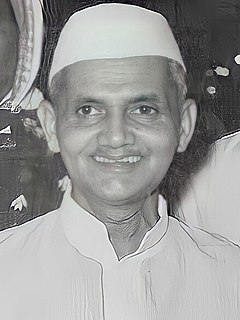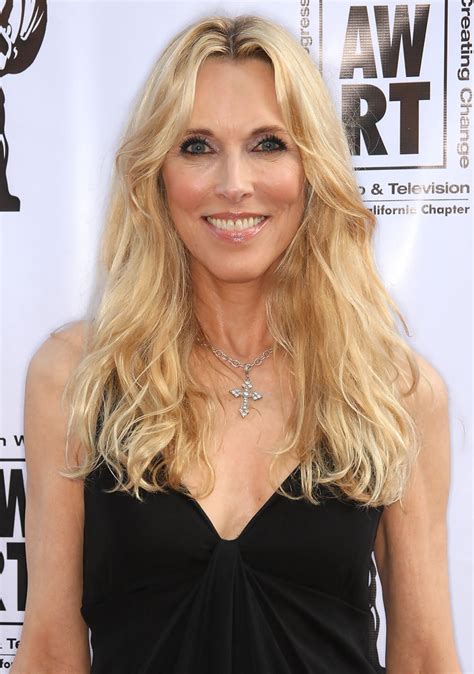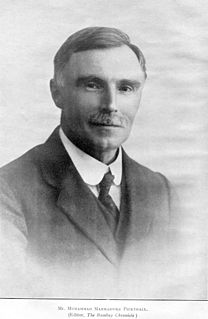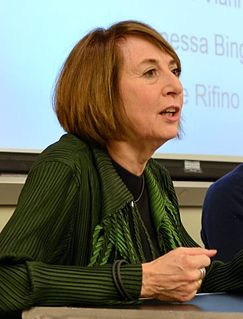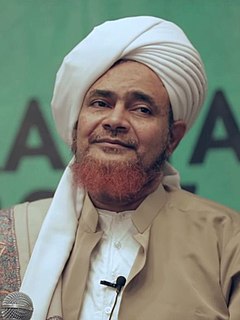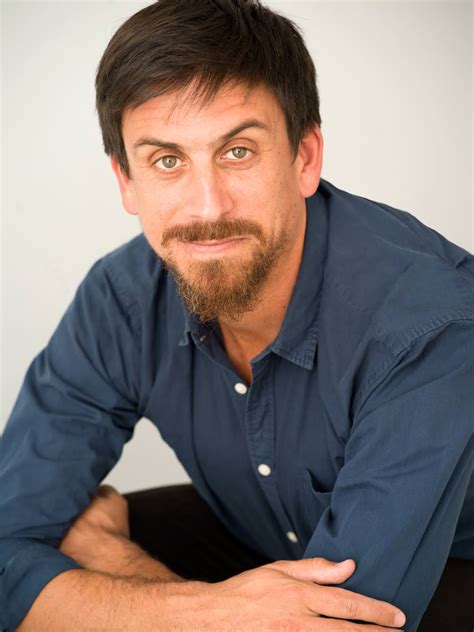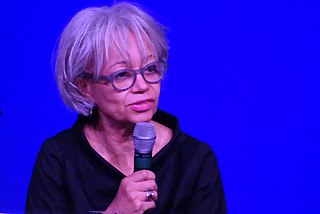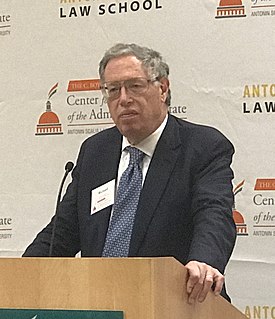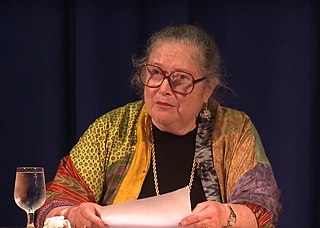A Quote by Diana L. Eck
I was a young woman who had grown up in the mountains of Montana as a Protestant Methodist in a pretty good social gospel tradition. I became fascinated with the religious lives of others who seemed also to be very religious, yet in ways that were quite different from my own. That fascination led to relationships, in India and elsewhere, with families of Hindus, of Muslims, of Sikhs, and a lot of study.
Quote Topics
Also
Became
Different
Elsewhere
Families
Fascinated
Fascination
Good
Gospel
Grown
Had
Hindus
India
Led
Lives
Lives Of Others
Lot
Methodist
Montana
Mountains
Muslims
My Own
Others
Own
Pretty
Pretty Good
Protestant
Quite
Relationships
Religious
Seemed
Social
Study
Tradition
Up
Very
Ways
Were
Woman
Young
Young Woman
Related Quotes
The Western press has always insisted that India was Pakistan's enemy and vice versa, that the Hindus were against the Muslims and vice versa. They've never said, for instance, that my party has been fighting this attitude ever since we have maintained that religious hostilities are wrong and absurd, that minorities cannot be eliminated from a country, that people of different religions must live together.
On areas like abortion where there is major disagreement among the mainstream religious groups in the Judeo-Christian tradition, I believe that requires a lot more caution. The Jewish position on abortion is very different from the Roman Catholic position. That is reason to be cautious about enacting laws rather than saying to the religious group: instruct your followers on these matters as matters of personal religious belief.
There has been a religious revival because - let me put it like this, the people that weren't traditionally religious, conventionally religious, had a religion of their own in my youth. These were liberals who believed in the idea of progress or they were Marxists. Both of these secular religions have broken down.
India went through a dramatic revolution after the '90s when our economy started opening up for the first time and Indians were now experiencing the Western life, if you will. Drugs and sex and a lot of those influences came in as the economy stabilized, and we were growing up and experiencing that. The Indian writing market was very small at that time. Our literature was very attuned to what Western audiences were interested in, so everybody was writing about the slums in India and magic realism or stories about Hindus and Muslims and partition.
I would like to study Judaism. I feel that my own Jewish education was really quite superficial from a certain point of view. Although I think the values were very clear and were presented very clearly, there's - there were aspects of the whole tradition that were not emphasized. And, you know, I've come to those areas myself as I've grown older. But I would like to go deeper.
All my life I have made it a rule never to permit a religious man or woman take for granted that his or her religious beliefs deserved more consideration than non-religious beliefs or anti-religious ones. I never agree with that foolish statement that I ought to respect the views of others when I believe them to be wrong.
In the eyes of history, religious toleration is the highest evidence of culture in a people. It was not until the Western nations broke away from their religious law that they became more tolerant, and it was only when the Muslims fell away from their religious law that they declined in tolerance and other evidences of the highest culture.
Once started, religious strife has a tendency to go on and on - to become permanent feuds. Today we see such intractable inter-religious wars in Northern Ireland, between Jews and Muslims and Christians in Palestine, Hindus and Muslims in South Asia and in many other places. Attempts to bring about peace have failed again and again. Always the extremist elements invoking past injustices, imagined or real, will succeed in torpedoing the peace efforts and bringing about another bout of hostility.
I'm very religious, you know. Now, OK, if by 'religious', you mean that I go to church every Sunday, read the bible faithfully, and I listen to Debbie Boone, umm, I'm not religious in that sense... But if by 'religious' you mean that I love others and try to help them whenever possible... Again, no. But if by 'religious' you mean that I like to eat coleslaw... Yeah, OK, OK!
Religious ideas about good and evil tend to focus on how to achieve well-being in the next life, and this makes them terrible guides to securing it in this one. Of course, there are a few gems to be found in every religious tradition, but insofar as these precepts are wise and useful they are not, in principle, religious.


